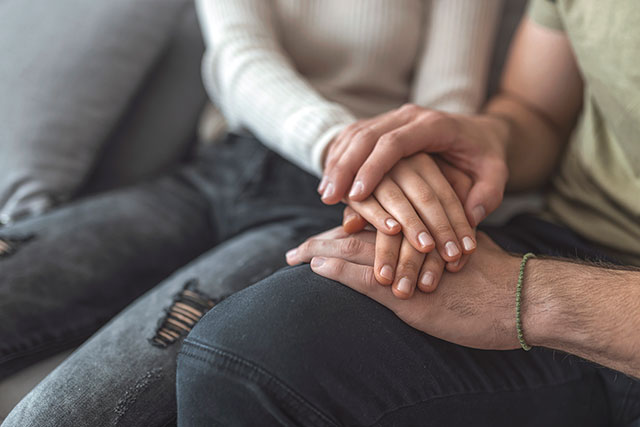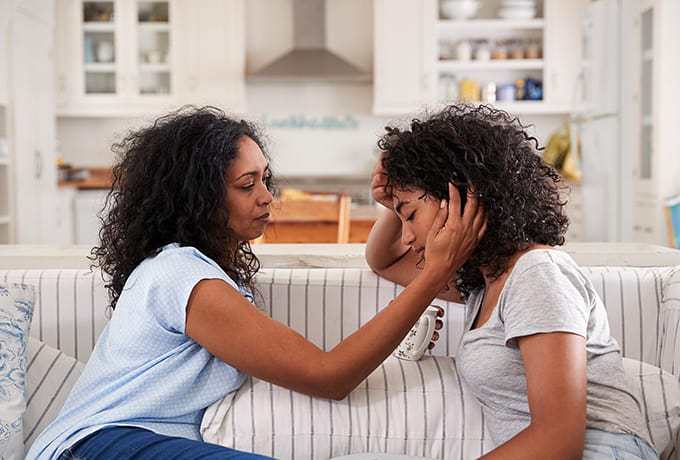Legal considerations: The Coroner
Sudden or unexpected deaths, including suicide deaths, are reported to the coroner by the police or a healthcare practitioner. During this difficult time, understanding the role of the coroner and coronial legal system, as well as the support they provide, can help you manage the initial days and weeks after a death.
The role of the coroner
The coroner investigates all suicides to determine the identity of the person, the cause of death, and in some situations, the circumstances surrounding the death. The coroner’s powers and responsibilities are governed by different legislation in each state and territory. The coroner usually has the authority to obtain copies of documents that will assist in their investigation, including medical records.
In most cases, the coroner will get in touch with the next of kin to talk through the next steps of the process. They may ask you for information to help them obtain the person’s medical records and may need to speak to you about the circumstances surrounding the death. They will also stay in communication throughout the process, discuss any decisions that need to be made, and answer any questions.
You can contact a funeral director at any time, as they can help you to plan the funeral and will liaise with the coroner.
Once the coronial investigation has finished, the coroner will make a written finding which includes a summary of the evidence relating to the circumstances of the death. The coroner will notify interested parties, including the next of kin. The coroner’s written finding is usually the final step in the coronial investigation process.
Death certificate
When a person dies, the death must be registered with the state or territory’s births, deaths, and marriages registry. Your funeral director can usually register a death as part of their service.
You can request a death certificate, or the funeral director can make the application on your behalf. If the death certificate is taking a while to be issued as they are still waiting for the coroner’s findings, you should be able to request an interim certificate.
For more information on requesting a death certificate, please visit your relevant state or territory Government website.
Inquests
In some cases, the coroner may decide to hold an inquest if the circumstances surrounding the death are unclear or if issues of public health and safety should be examined. Few coronial investigations proceed to an inquest. The family will be notified if an inquest will be held.
An inquest is usually a public hearing, which can vary in length from hours to weeks depending on the complexity of the circumstances. Opening summaries are made at the inquest, and witnesses can be called to give evidence. The coroner may also accept final submissions and invite the family to make a statement.
An inquest is not a trial. It is not the coroner’s role to make a finding of guilt or lay blame, but they can issue an opinion as to the factors they believe contributed to the person’s death. The coroner may comment on any matter related to the death and may make recommendations to the Government and agencies with a view to improving public health and safety or preventing similar deaths.
Coroners Court support services
The Coroners Court in each state and territory has different options of support for family members, which may include:
- Support for families exposed to deaths occurring in traumatic circumstances.
- Referrals to other agencies and specialist services for ongoing support.
- Assistance with understanding the role of the coroner and the court’s processes.
For more information about the services and support available in your area, please contact the Coroners Court in your state or territory.
Australian Capital Territory Coroners Court
New South Wales Coroners Court
Northern Territory Coroners Court
Queensland Coroners Court
South Australia Coroners Court
Magistrates Court of Tasmania
Coroners Court of Victoria
Coroners Court of Western Australia
Accessing medical records after a death
The right to access medical records after a person has died varies between the states and territories. In general, health professionals still have an obligation to protect the privacy of their patients, even after the patient has died. Typically, medical records can be shared when required by law or when ordered by a court. If access to the records is granted, it is usually restricted to the executor of the will or the administrator of the estate. The coroner can also request access to the person’s medical records, which will form part of their coronial investigation.
For more information, contact the Coroners Court in your area or seek legal advice.
Additional Resources
Lifeline and StandBy Support After Suicide have jointly developed a Support After Suicide Toolkit. The Toolkit has a variety of leaflets and resources to support anyone bereaved or impacted by suicide. Download the Support After Suicide Toolkit.
StandBy Support After Suicide also offers free face-to-face and phone support, as well as peer support for anyone who has been bereaved by suicide. Visit their website for more information.
You can also visit the Australian Government Services website, which provides information, practical advice, and details on the support available for family members who have lost someone. Visit the Services Australia website.
If you are struggling and need support now, you can call a free 24/7 helpline:
- 13YARN is an Aboriginal or Torres Strait Islander crisis support service. Call 13 92 76.
In this difficult time, please remember that help and support are available. If you have lost someone to suicide and want to speak to a counsellor, call Suicide Call Back Service on 1300 659 467 or click on the chat button. Our nationwide service is free and available 24/7.
If it is an emergency, please call 000.









